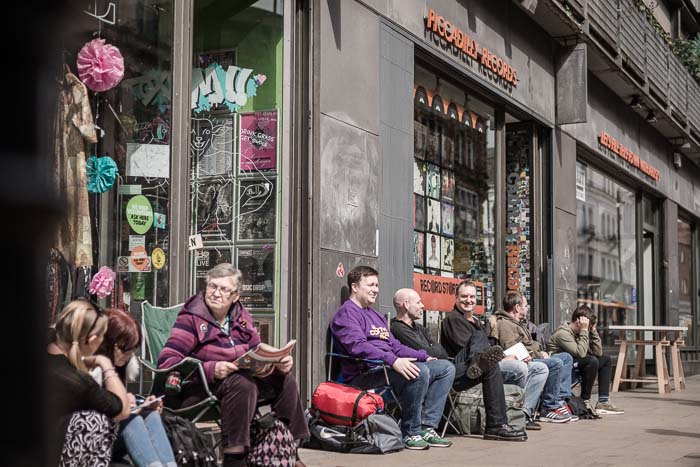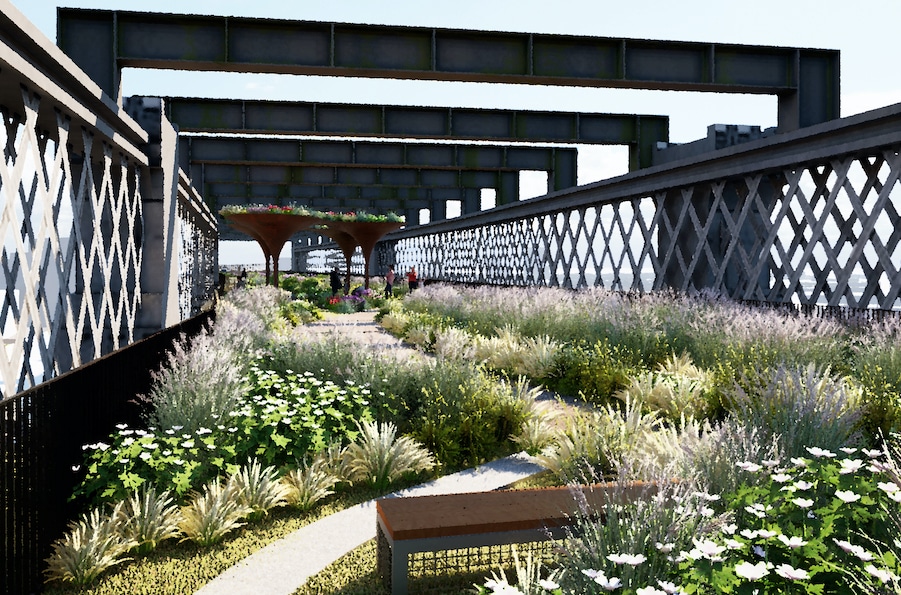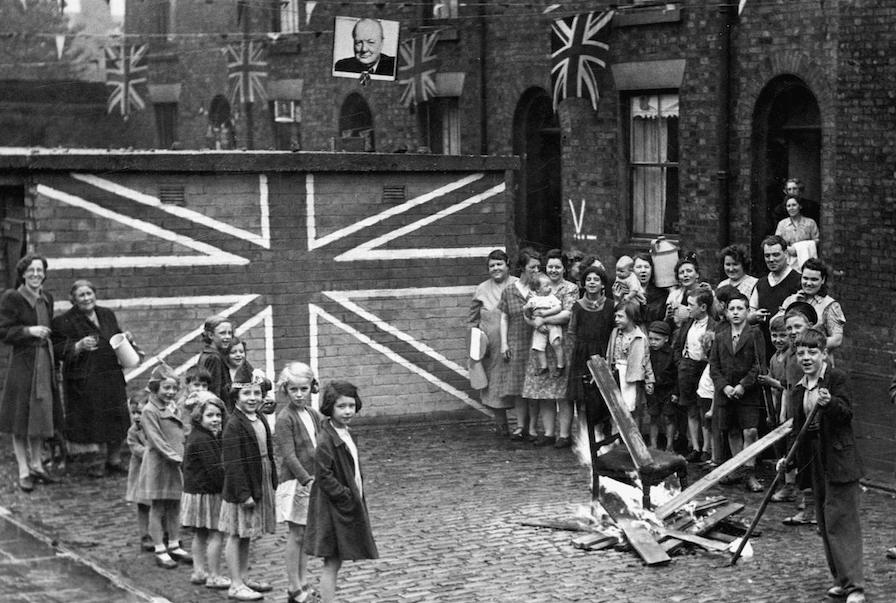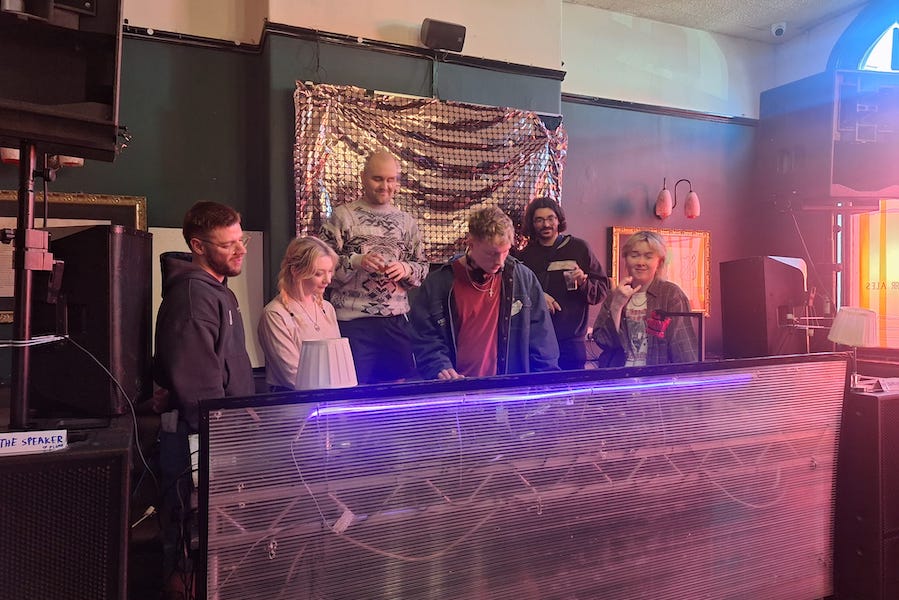Another cameo role for Manchester’s oldest and biggest film star
- Written by Ray King
- Last updated 7 years ago
- City of Manchester, Culture
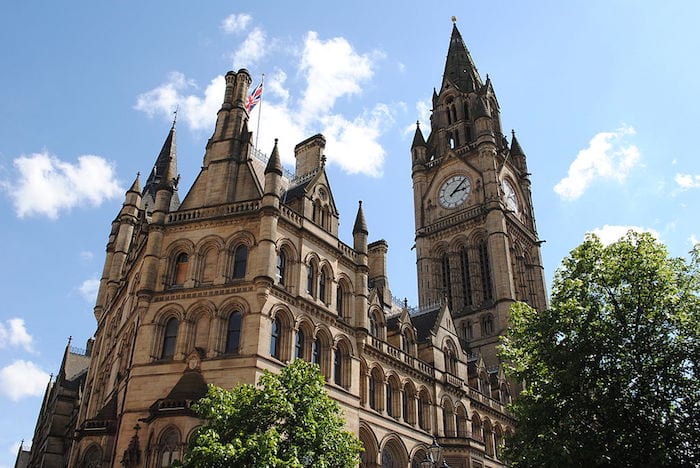
The biggest star in BBC television’s must-watch Sunday night drama A Very English Scandal isn’t Hugh Grant, who plays disgraced former Liberal Party leader Jeremy Thorpe.
Grant stands a mere 5ft 11 inches tall. Manchester town hall, where much of the action is shot, tops 280ft.
What’s more, Alfred Waterhouse’s magnificent Victorian gothic masterpiece in Albert Square – begun 150 years ago this year – has starred in far more top movies (including two Oscar winners) and memorable television productions than the actor, best known for big screen rom-coms like Four Weddings and a Funeral and Notting Hill.
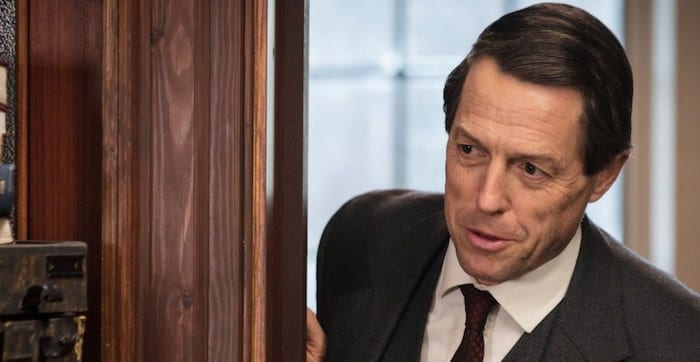
To be fair, Grant has been brilliant in the role of the Liberal politician brought down by the revelation of a relationship with former model Norman Scott. The BBC’s current three-parter is just the latest in a long line of screen dramas filmed the in and around the town hall. But it is likely to be one of the last, or indeed the last, for some time.
The town hall was closed to the public earlier this year. A city council spokesman said it would not be possible to accommodate TV or movie filming during the six-year closure of the building for its £328 million restoration “because of the nature of the work taking place and the logistical complications involved.
“But of course the work to safeguard and restore its many heritage elements will allow the town hall to continue to be used for filming on an ongoing basis once it reopens,” he added.
The Grade I-listed town hall has provided a back drop to many films and television programmes across the decades. At times it has been transformed beyond recognition, while playing host to some of the world’s most lauded actors and filmmakers.
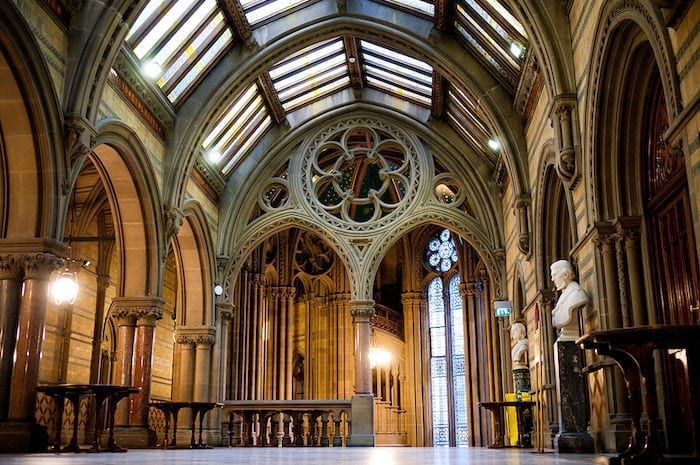
The interior of the town hall has benefited from an uncanny resemblance to the Palace of Westminster, which was built only seven years before. The likeness has seen the building used multiple times as a stand-in for the Houses of Parliament, featuring prominently in the 2011 biopic of Margret Thatcher, The Iron Lady – which earned Meryl Streep an Oscar.
For those with a slightly longer memory the town hall filled the same role in the original TV version of House of Cards (1990), acting as the stage for the political machinations of Francis Urquhart, played by Ian Richardson. Famously, when his character pushed a journalist from the roof into Albert Square, she hit the ground in Westminster.
The splendour of the town hall’s neo-gothic architecture has also proved an irresistible draw for historical drama. The Victorian grandeur of the building has featured in programmes like Peaky Blinders (2013), Ripper Street (2012), and the Crimson Petal and the White (2011).
Hollywood has been enamoured too, dressing the town hall’s triangular central courtyard – which was never cleaned in the 1960s and remains sooty black – as a smoggy, bustling nineteenth century street for films such as Victor Frankenstein (2015) staring Daniel Radcliffe and James McAvoy, Guy Ritchie’s interpretation of Sherlock Holmes (2009) with Robert Downey Jr, and The Limehouse Golem (2016), a big budget adaptation of the Peter Ackroyd novel featuring Bill Nighy.
More recently the town hall has been used by director Joe Wright for his biopic of Winston Churchill, The Darkest Hour (2018). The film focuses on Churchill’s early years at the start of World War II and stars an unrecognisable Gary Oldman whose performance saw him take home the Academy Award for Best Actor at this year’s Oscars in March.
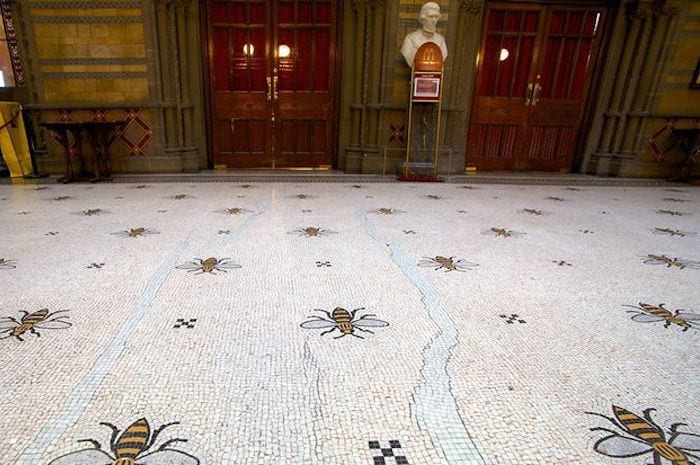
And eagle-eyed viewers will be able to catch the town hall on their screens throughout 2018, including the adaptation of China Miéville’s award-winning novel The City and The City. The feature-film Tolkien, dramatising the creation of Lord of the Rings and starring Nicholas Hoult in the eponymous role, is due for release later this year.
Away from its dramatic roles the town hall has also proved a popular location for a selection of factual programmes, with broadcasters entranced by the building’s Grand Hall and striking interiors.
Noticeable in Sunday’s episode of A Very English Scandal were the town hall’s grand ceremonial staircases leading from the ground floor to the Great Hall and the handsome state rooms. Plus the courtyard, and the corridors of power sporting Manchester’s worker bee emblem in the mosaic floors – something you don’t get in the Palace of Westminster!
The longevity of the town hall’s screen career – pre-cleaning, it featured in the opening credits of the movie version of A Taste of Honey (1961) – dwarfs that of even the most legendary actors. And like a Hollywood great, it’s about to have some work done, ensuring it will continue to shine brightly.
It is certain that filmmakers will continue to be attracted to the town hall once it reopens. The iconic building is destined to maintain its prominent role both in films and on television for many years to come.
- This article was last updated 7 years ago.
- It was first published on 30 May 2018 and is subject to be updated from time to time. Please refresh or return to see the latest version.
Did we miss something? Let us know: press@ilovemanchester.com
Want to be the first to receive all the latest news stories, what’s on and events from the heart of Manchester? Sign up here.
Manchester is a successful city, but many people suffer. I Love Manchester helps raise awareness and funds to help improve the lives and prospects of people across Greater Manchester – and we can’t do it without your help. So please support us with what you can so we can continue to spread the love. Thank you in advance!
An email you’ll love. Subscribe to our newsletter to get the latest news stories delivered direct to your inbox.
Got a story worth sharing?
What’s the story? We are all ears when it comes to positive news and inspiring stories. You can send story ideas to press@ilovemanchester.com
While we can’t guarantee to publish everything, we will always consider any enquiry or idea that promotes:
- Independent new openings
- Human interest
- Not-for-profit organisations
- Community Interest Companies (CiCs) and projects
- Charities and charitable initiatives
- Affordability and offers saving people over 20%
For anything else, don’t hesitate to get in touch with us about advertorials (from £350+VAT) and advertising opportunities: advertise@ilovemanchester.com
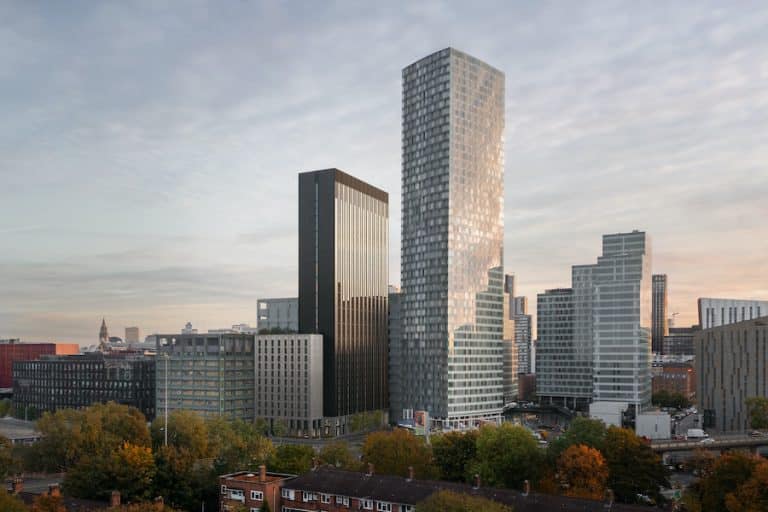

The Manc aerobics queen who trained the Corrie cast is helping raise charity cash
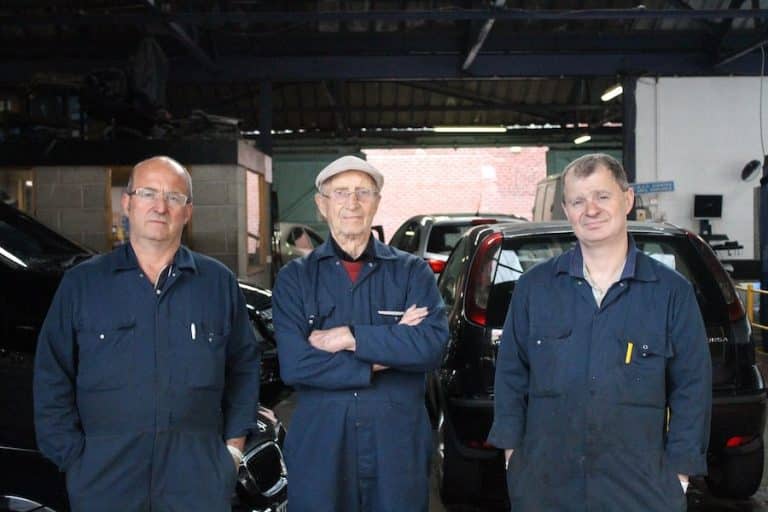
Ancoats to get even cooler as independent market set for MOT garage site
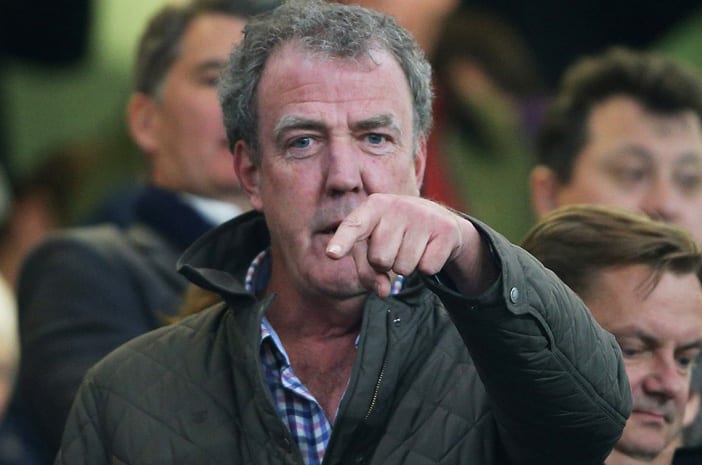
“Manchester is not Britain’s second city, it’s the first” – Jeremy Clarkson
